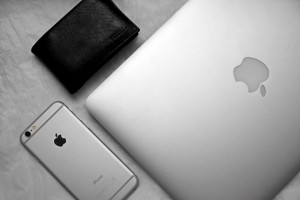
Photographer: Marc Mueller
“Imagine losing your smartphone or leaving your laptop behind on a train or bus. How much could someone learn about you — your interests, your lifestyle, your habits — based on what they could access on the device?,” wrote Matthew Braga for CBC News on August 15, 2017.
Braga continued, “What conclusions could someone make when the photos you’ve taken, the apps you’ve installed and the websites you’ve visited are laid bare?
According to the Supreme Court of Canada: quite a few.
Unlike a briefcase or a filing cabinet, judges have found, a smartphone can contain “immense amounts of information” that touch a person’s “biographical core.”
They’ve acknowledged that laptops create detailed logs and trails of data that can be used to retrace a person’s steps in ways that physical documents can’t.
And lawyers have successfully argued that smartphones and laptops, far from being static stores of information, are in fact portals to the near-limitless volumes of data stored in the cloud — from social media profiles to email accounts and file-sharing apps.”
Read the full article here.
Subscribe to: Post Comments (RSS2)